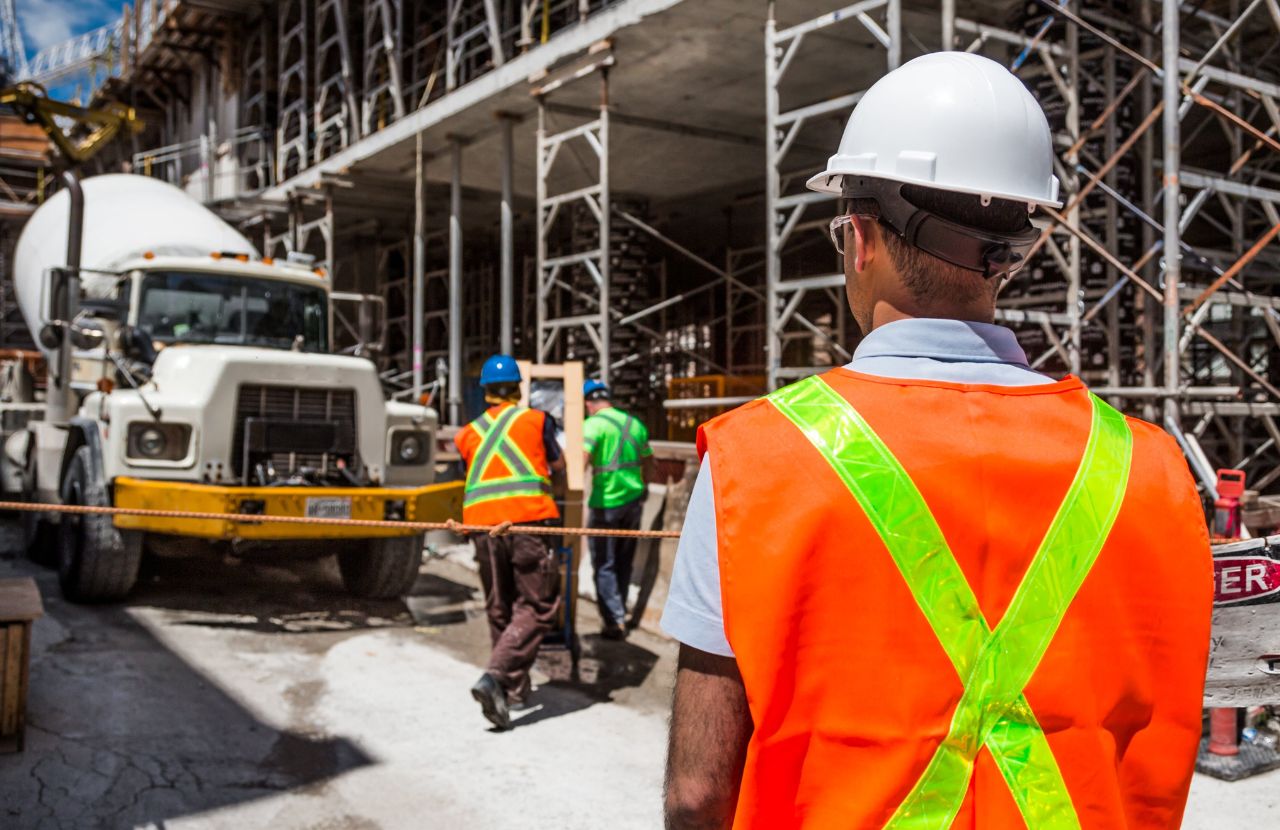
Are you looking for a job that makes a profound impact on people’s lives? A career in health and safety could be the perfect fit for you. In a world where prioritising the wellbeing and safety of workers has never been more critical, health and safety is a growing profession and opens a world of opportunities to you.
Health and safety professionals are the unsung heroes of businesses, playing an indispensable role in preventing workplace injuries, preserving the wellbeing of employees, and ultimately, saving lives.
So, let’s delve into some of the reasons why so many young people are now opting for careers in health and safety, the types of roles you could choose from, and how you can break into this field.
Why I chose a career in health and safety…

Tyler Norris is a 23-year-old Senior Case Handler at Praxis42. Here he talks about why he chose a career in health and safety, what the job involves and his tips for others thinking about a similar career path.
Briefly, please describe your job.
I’m a senior case handler helping the team book in jobs for our health and safety advisers. I communicate regularly with clients and the advisers scoping out potential work. I also carry out DSE assessments over the telephone.
What does a typical day look like?
Lots of communication with clients to figure out which jobs require what resources. These are all reactive, so you do not know what to expect each day. I’m also completing multiple DSE Assessments via telephone calls every week and training for other specific jobs as well.
How did you get into health and safety?
I started as an apprentice at Praxis42 for the consultancy side of the business. After seeing the different health and safety assessments that happen, I took an interest and started speaking to colleagues who have been down the health and safety route. After some conversations, it became apparent that this is something that I could get involved in and grow a career in.
What qualifications did you need?
As I look to progress in my role towards a health and safety adviser, I am completing the NEBOSH General Certificate. After this I will be looking towards the NEBOSH Diploma. I will also become a member of IOSH once I have completed the NEBOSH General Certificate.
What do you enjoy the most about your job?
Two aspects of my job I enjoy is speaking with clients and scoping out potential jobs. I also enjoy improving my knowledge with the help of some of the advisers at the company.
What do you enjoy the least about your job?
At the moment, some things can be quite repetitive but as I progress in my role, I will be able to expand on my skills so I can look at different areas of health and safety.
What are the main benefits of your job?
I am gaining good experience communicating with clients, understanding their needs and their point of view as an outsider to health and safety. Also, once I gain the necessary qualifications, I will be able to go out and visit various sites completing different types of risk assessments, expanding my knowledge.
What advice would you give to someone who wants a health and safety career?
Don’t be scared to ask questions to people who have a greater understanding of health and safety. I have gained so much knowledge from having conversations with health and safety professionals about subjects that I only had a basic understanding of. There is so much information that no one will be expecting you to know straight away.
What are the pros of a career in health and safety?
Here’s why working in health and safety can be a fulfilling and wise career choice:
- Job satisfaction. Health and safety professionals make a positive difference to people’s lives. Knowing that the work you do contributes to keeping people safe and healthy can be highly satisfying. The role is about preventing serious illness and injury and saving lives.
- Job security. The demand for health and safety professionals is on the rise. Organisations are increasingly prioritising workplace safety, and they must also comply with stringent regulations. This trend creates a robust job market with a variety of career opportunities.
- Diverse career paths. See, ‘Can you tailor your career to your interests?’ below.
- Competitive salaries. Health and safety professionals often enjoy competitive salaries which increase based on experience, specialism, and industry.
- Global opportunities. The principles of health and safety are applicable globally, which means your skills and knowledge are in demand both in the UK and internationally. This opens up opportunities for travel and working in different parts of the world.
- Continuous learning. Health and safety is a dynamic field that requires staying up to date with changing regulations, technologies, and best practices. This provides opportunities for continuous learning and professional development.
- Influence and leadership. Health and safety professionals have the opportunity to influence workplace culture, policies and practices. They can become leaders in creating a safety-conscious environment.
- Contribution to sustainability. Professionals in this field often play a role in promoting sustainability and environmental responsibility within organisations, aligning health and safety with broader corporate goals.
A career in health and safety offers personal satisfaction, professional growth, and the chance to make a real difference to the safety and wellbeing of individuals at work. It’s a field that continues to evolve, presenting ongoing opportunities for learning and career advancement.
Can you tailor your career to your interests?
As a health and safety professional you can tailor your career to your interests and forge a career path that aligns with your passions.
These are examples of areas you could specialise in, and you can specialise in more than one area:
- Health and safety training and education. Some professionals specialise in developing and delivering health and safety training programs to ensure that employees are well-informed about safety practices and procedures.
- Health and safety consultancy. Health and safety consultants provide a range of services to organisations to help them protect employees, visitors, and contractors and to ensure they meet legal requirements and best practices.
- Fire safety. Fire safety specialists focus on preventing and managing fire hazards in workplaces. Read our article, 10 benefits of hiring fire safety consultants to learn more about the role.
- Transport safety. Transport safety specialists concentrate on the safety of loading, moving, and transporting goods including road, rail, air and maritime. Some professionals specialise in workplace transport risk assessments.
- Risk assessment. Risk assessors are responsible for identifying potential hazards in the workplace and evaluating the level of risk associated with them. They play a crucial role in determining appropriate control measures.
- Construction safety. Construction sites present unique hazards, and specialists focus on ensuring construction projects are carried out safely. They assess risks related to heavy machinery, working at heights, hazardous materials, and more.
- Industrial hygiene. Industrial hygienists focus on identifying and controlling workplace hazards related to chemical exposure, noise, air quality and other environmental factors. They often work in manufacturing, chemical, or industrial settings.
- Environmental health and safety (EHS). EHS professionals manage the environmental impact of businesses and ensure compliance with environmental regulations. They deal with issues such as waste management, pollution control, and sustainability.
- Safety engineering. Safety engineers apply engineering principles to design and implement safety measures in workplaces. They may work on the development of safety systems, equipment, and processes.
- Behavioural safety. Specialists in behavioural safety focus on influencing and improving employee behaviours to reduce accidents and promote a safety-conscious culture within an organisation.
- Emergency response and disaster management. These professionals are experts in planning for and responding to emergencies and disasters, ensuring that employees and facilities are prepared for various crisis scenarios.
Whatever specialisms you choose there will be an organisation that needs you. Every sector requires the services of a health and safety professional, so whether you want to work in agriculture, construction, food and drink manufacture, local government, health and social care, or anything else – you can decide!
How to start a career in health and safety
There are a number of ways to start a career in health and safety including college courses, apprenticeships and trainee positions in organisations.
Respected, recognised qualifications in health and safety are IOSH, NEBOSH and NVQ. IOSH courses are an excellent starting point if you have no prior knowledge of health and safety.
If you are interested in a career in health and safety, or want to see if there are any opportunities to work with us at Praxia42 email us at consultancy@praxis42.com or call now.





